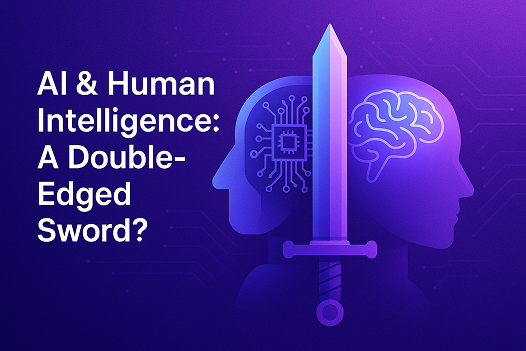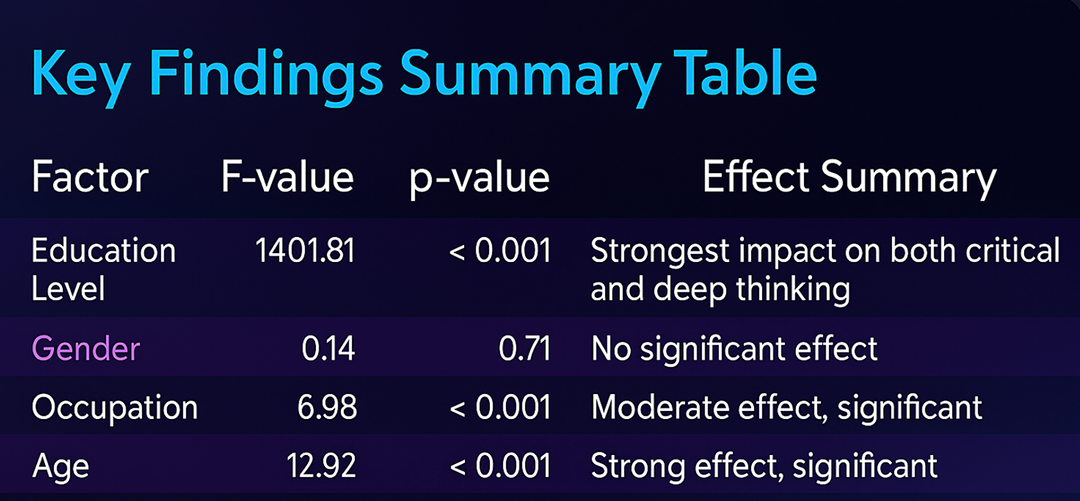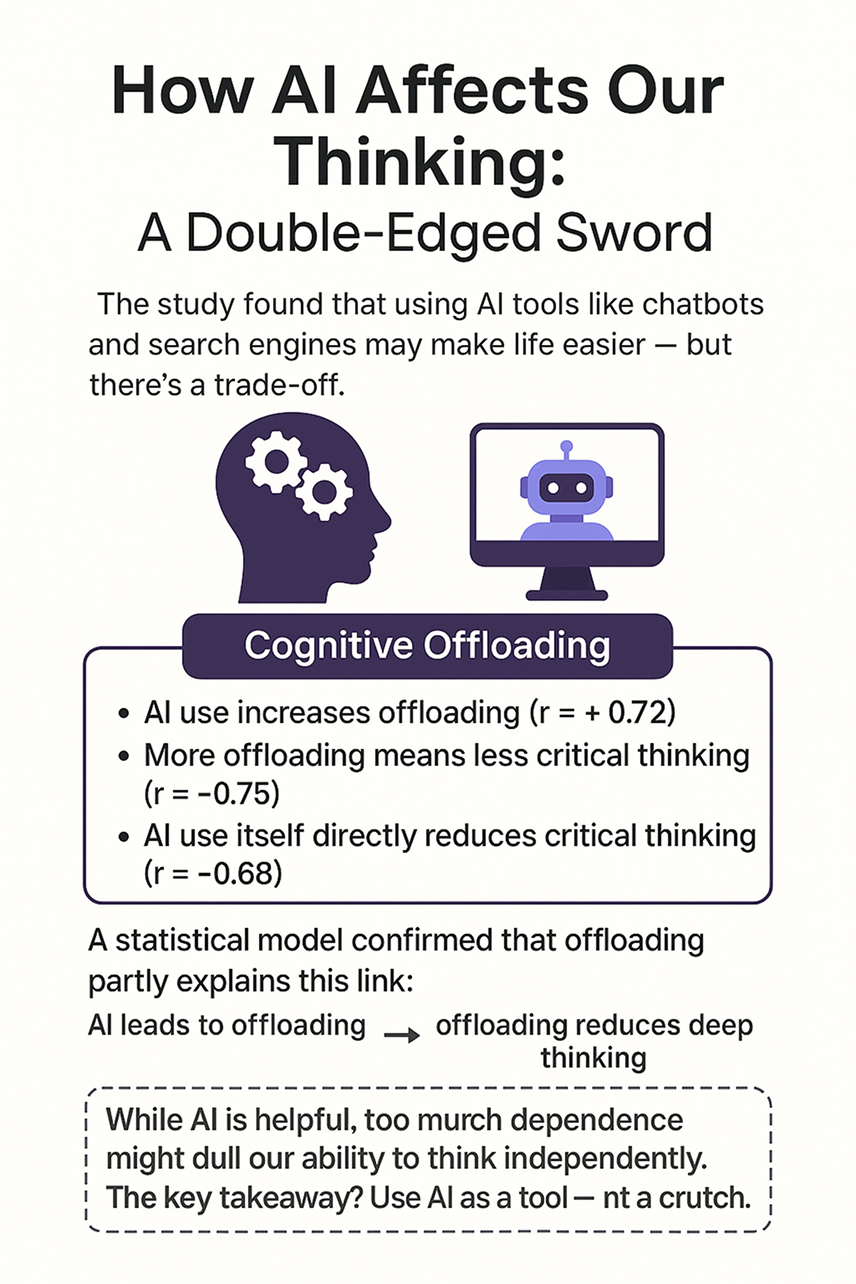This study used ANOVA — a statistical method that shows how different groups compare — to explore how education, age, occupation, and gender affect two key abilities: critical thinking and deep thinking. The F-value tells us how strong the effect is, and the p-value shows if the result is statistically meaningful (p < 0.05 is considered significant).
The strongest finding was the role of education level. With an extremely high F = 1401.81 and p < 0.001, education clearly has a powerful effect. People with more advanced education tend to think more critically and engage more deeply.
Age also showed a solid influence (F = 12.92, p < 0.001). Older participants performed better in both thinking tasks, likely due to more life experience and reflective habits.
Occupation had a moderate but significant effect (F = 6.98, p < 0.001). Jobs that require analysis and decision-making seem to encourage deeper thinking.
In contrast, gender had no significant impact (F = 0.14, p = 0.71), meaning men and women show equal levels of critical and deep thinking. Cognitive ability appears to depend more on experience and background than gender.
Finally, the study found that higher AI tool usage was linked to lower critical thinking (p < 0.001), suggesting that relying too much on technology can reduce mental effort and independent reasoning.
In short: education, age, and job type shape how we think, while gender doesn’t matter much — and too much dependence on AI may weaken critical thinking over time.


